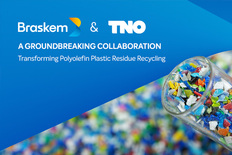- Braskem and TNO signed a Joint Development Agreement to advance Möbius dissolution-based recycling technology.
- The project focuses on purifying polyolefin plastic residues to produce near-virgin grade polymer resin.
- The technology aims to enhance the value and application scope of recycled materials, including food contact packaging.
- Studies indicate this method has better sustainability metrics compared to conventional recycling.

Partnership Overview
Braskem has partnered with the Netherlands Organization for Applied Scientific Research (TNO) to enhance circularity and sustainability in the plastics industry. The collaboration focuses on advancing the Möbius dissolution-based recycling technology for polyolefin plastic residue waste streams.
Project Goals
The primary objective is to investigate the feasibility and scale-up potential of this innovative recycling process. The technology aims to transform the purification of plastic residues, effectively removing a wide array of impurities. This process promises to yield near-virgin grade polymer resin and 100% segregated product, enhancing the value and application scope of recycled materials, such as food contact packaging.
Technological Advantages
Dissolution-based recycling is a promising approach to reducing plastic pollution and combating climate change. Studies have shown that this technology has better sustainability metrics compared to conventional recycling methods, making it an attractive option for a greener future.
Statements from Key Figures
Antonio Queiroz, Vice President of Innovation, Technology and Sustainable Development at Braskem, emphasized the company's commitment to sustainability and circularity through advanced recycling technologies. Richard Braal, Division Director Industry at TNO Energy and Materials Transition, expressed excitement about redefining the boundaries of plastics recycling through joint innovation.

